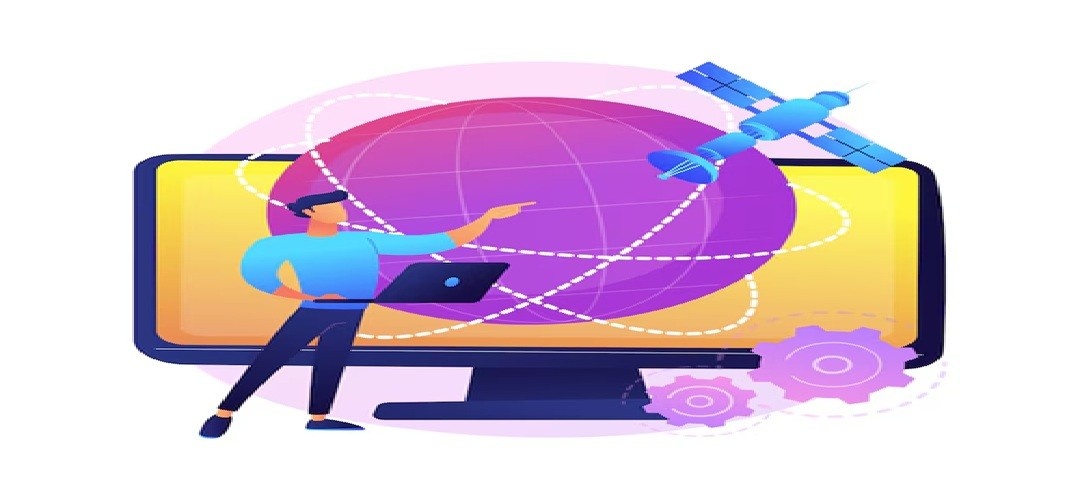
The internet as we know it is undergoing a profound transformation. Beyond the familiar websites and apps, a new digital realm is emerging — the metaverse. This immersive, interconnected network of virtual worlds promises to revolutionize how we interact, work, play, and experience the world around us. This comprehensive guide will delve into the multifaceted world of the metaverse, exploring its key concepts, technologies, potential applications, and the challenges and opportunities it presents.
What is the Metaverse?
The metaverse is not a single entity but rather a convergence of various technologies and concepts, including:
- Virtual Reality (VR): VR headsets provide immersive experiences, allowing users to feel present in virtual environments.
- Augmented Reality (AR): AR overlays digital information onto the real world, enhancing our perception of reality.
- Mixed Reality (MR): MR blends VR and AR, allowing users to interact with both virtual and real-world objects.
- Blockchain: Blockchain technology enables secure and transparent transactions and ownership of digital assets within the metaverse.
- Artificial Intelligence (AI): AI powers intelligent agents, personalized experiences, and realistic interactions within the metaverse.
- 3D Graphics and Avatars: Advanced 3D graphics create realistic and immersive virtual environments, while avatars represent users' digital identities.
Key Characteristics of the Metaverse:
- Persistence: The metaverse is persistent, meaning it exists even when you're not actively participating.
- Interoperability: Different platforms and virtual worlds within the metaverse are interconnected, allowing users to seamlessly move between them.
- Immersiveness: The metaverse offers immersive experiences that engage multiple senses, blurring the lines between the physical and digital worlds.
- Social Interaction: The metaverse facilitates social interaction, allowing users to connect with others in virtual spaces.
- Economic Activity: The metaverse supports economic activity, with users buying, selling, and trading digital assets and experiences.
Potential Applications of the Metaverse:
The metaverse has the potential to revolutionize various aspects of our lives, including:
- Gaming and Entertainment: Immersive gaming experiences, virtual concerts, and interactive entertainment are already taking shape in the metaverse.
- Social Interaction and Community Building: The metaverse provides new ways to connect with friends, family, and communities, regardless of physical location.
- Education and Training: Immersive learning environments, virtual field trips, and interactive simulations can enhance education and training.
- Healthcare: Virtual reality therapy, remote surgery, and patient education are some of the potential applications in healthcare.
- Retail and E-commerce: Virtual stores, immersive shopping experiences, and personalized product recommendations are transforming retail in the metaverse.
- Real Estate and Architecture: Virtual tours, 3D models, and interactive design tools are revolutionizing real estate and architecture.
- Manufacturing and Industry: Virtual prototyping, remote collaboration, and training simulations are improving efficiency and safety in manufacturing and industrial settings.
Challenges and Opportunities in the Metaverse:
The development and adoption of the metaverse present both challenges and opportunities:
- Technological Challenges: Creating a truly immersive and interoperable metaverse requires overcoming significant technological challenges, including high-bandwidth connectivity, powerful hardware, and sophisticated software.
- Ethical and Social Concerns: Issues such as privacy, security, identity, and accessibility need to be addressed to ensure a safe and inclusive metaverse for all.
- Economic and Legal Frameworks: New economic models, legal frameworks, and governance structures are needed to regulate activities and transactions within the metaverse.
- Accessibility and Inclusivity: Ensuring that the metaverse is accessible and inclusive to all, regardless of their physical abilities, socioeconomic status, or geographic location, is crucial.
The Future of the Metaverse:
The metaverse is still in its early stages of development, but its potential is vast. As technology continues to advance and adoption grows, the metaverse is poised to become an integral part of our lives, transforming how we interact, work, and play. Here are some potential future developments:
- Increased Realism and Immersion: Advancements in VR, AR, and MR technologies will lead to more realistic and immersive experiences, blurring the lines between the physical and digital worlds even further.
- Seamless Interoperability: Different platforms and virtual worlds within the metaverse will become more interconnected, allowing users to seamlessly move between them and access a wider range of experiences.
- AI-Powered Personalization: AI will play a greater role in personalizing experiences within the metaverse, tailoring content, interactions, and environments to individual user preferences.
- Decentralization and User Ownership: Blockchain technology will enable greater decentralization and user ownership of digital assets and experiences within the metaverse.
- Integration with the Physical World: The metaverse will increasingly integrate with the physical world through technologies like AR and IoT, creating a blended reality where the physical and digital worlds coexist and interact.
Conclusion:
The metaverse is a transformative technology that has the potential to revolutionize various aspects of our lives. While it presents challenges that need to be addressed, it also offers immense opportunities for innovation, creativity, and connection. By understanding the key concepts, technologies, and potential applications of the metaverse, we can prepare for the future and embrace the opportunities it presents. As the metaverse continues to evolve, it's crucial to prioritize ethical considerations, ensure accessibility and inclusivity, and foster a vibrant and thriving digital ecosystem that benefits all.
Published on January 1, 1970

